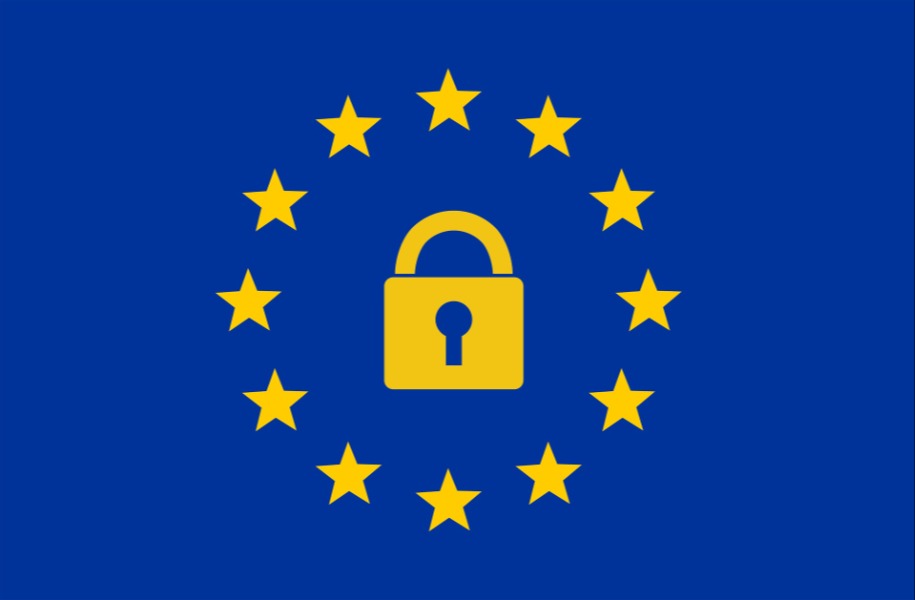France's Extended State of Emergency: What New Powers Did the Government Get?
Yesterday, French President François Hollande signed into law a bill that extends the state of emergency for three months and expands the government’s already broad police powers. Passed in haste, the law avoided a preliminary constitutional review. Meanwhile, the government has urged other far-reaching legal and policy changes to enhance counterterrorism.
Published by The Lawfare Institute
in Cooperation With

Yesterday, French President François Hollande signed into law a bill that extends the state of emergency for three months and expands the government’s already broad police powers. Passed in haste, the law avoided a preliminary constitutional review. Meanwhile, the government has urged other far-reaching legal and policy changes to enhance counterterrorism.
The new law (text here) extends the state of emergency from November 26 through the end of February 2016 and significantly revises the colonial-era law described in this prior post. The French Parliament voted overwhelmingly for the new law. On Friday, the Senate voted 336 to 0 to adopt the law, with 12 abstentions. The day before, the National Assembly voted 551 to 6, with 1 abstention.
France rushed to enhance emergency powers.
The law comes on the heels of the government’s call for greater emergency powers in the wake of the Paris terrorist attacks. On Monday, in a dramatic speech to a rare joint session of Parliament at Versailles, President Hollande called for an extension of the state of emergency, the law’s revision, and an amendment to secure its constitutional status.
Within 48 hours, Prime Minister Manuel Valls presented a bill to the National Assembly, warning ominously of further homegrown terrorism, as well as chemical and biological attacks (speech here). The deputies reportedly had only two hours to consider a flurry of amendments to the law; they adopted 23 of them before sending the bill to the Senate.
The Senate adopted the identical text, rejecting eight proposed amendments. This comes as little surprise, since the government had a strong interest in ensuring the Senate adopted the same language passed by the National Assembly the day before. Any change by the Senate, however minor, would have delayed the legislative process and allowed the state of emergency to lapse.
In recent memory, France has extended states of emergency via rushed legislation at least twice—in 2005 (in response to riots in Paris and other cities) and in 1984 (in response to a militant independence movement in New Caledonia, a French territory in the South Pacific). Unlike these past instances, today’s law not only extends the state of emergency but also revises the law to supplement the state’s police powers.
What extra powers does the French government get?
The revised law provides both heightened powers and some increased restrictions on government action. The new law provides some (albeit modest) changes serving civil liberties:
- Parliamentary oversight is added. The government must inform both houses of the actions it takes during the state of emergency, and Parliament may require additional information to monitor and evaluate the measures taken.
- Press controls are removed. The 1955 law contained a provision that allowed the government to take “all measures to control the press and publications,” but the Parliament dropped this language when it rewrote the provision on searches.
- Military tribunals are no longer authorized. Prime Minister Valls called these provisions “outdated and obsolete.”
Most provisions, however, significantly enhance the state’s counterterrorism powers.
- House arrests may be conducted at an even lower standard. Under the 1955 law, the government could require house arrests for persons whose activities “prove to be dangerous to security and the public order.” The 2015 law, which has broader language, appears to loosen this standard: the government may impose a house arrest as long as it has “serious reason to think that the person’s conduct threatens security or the public order.”
The Minister of the Interior may require persons under house arrest to report to the police up to three times per day, hand over their passports and all other forms of identification, and prohibit their communication (direct or indirect) with certain designated persons. The Minister may require persons convicted of a crime of terrorism or offense punishable by 10 years to submit to electronic surveillance for 8 years following the end of his or her sentence.
- Freedom of association is restricted. The government may now disband groups and associations of persons that “take part in committing acts that present serious harm to the public order or who facilitate such acts.” Interior Minister Bernard Cazeneuve has already called for the “dissolution of mosques where hate is preached.” One Internet freedom group points out that the law’s broad language that covers “facilitating” harmful acts could ensnare groups that promote the use of encryption technology, available not only to criminals and terrorists but also to innocent civilians.
- Physical searches remain broad but are more regulated. Under the 1955 law, the government had broad license to conduct warrantless searches of homes day and night. Under the new 2015 law, the government may still order such warrantless searches, but only if there are “serious reasons to think the place is frequented by a person whose conduct threatens security or the public order.” The government may not search places engaged in the exercise of parliamentary duties or the professional activities of lawyers, magistrates, and journalists. Moreover, unlike under the previous law, the government must now specify the time and place of the search. The occupant, or his representative or two witnesses, must be present during the search. While the law still does not require a prior judicial warrant, it does provide some administrative restrictions.
- Electronic searches expressly expand the state’s power. The law specifically authorizes electronic searches, which the 1955 version did not contemplate. Under the new law, the government may access and copy in whole or part any information accessed from an “initial system” discovered on the premises. Therefore, if the police discover a smartphone or other computer, they can search any information on those devices, including information stored on the cloud.
- Internet control powers are also expanded. The Minister of Interior may take “any measure” to block websites and social networks “inciting or glorifying terrorist attacks” immediately and without judicial control. Under the much criticized antiterrorism law of 2014 (see here and here), the Interior Minister could already block websites without a court order but had to first request web hosts to restrict access themselves. Only after 24 hours could the government require ISPs to deny access. The new state of emergency law goes further: the Interior Minister may act immediately.
- Penalties are increased. Violations of house arrests now result in up to three years in prison and a €45,000 Euro fine. Violations of traffic bans or security zones, whose authorization the new law leaves intact, now result in six months in prison and a €7,500 Euro fine.
- Remedial measures are removed. The new law removes a provision that allowed citizens to request the removal of emergency measures applied to them, as well as to challenge such measures as abuse of authority.
Notably, the Parliament rejected an amendment that would have restricted the state of emergency to one month instead of three months, as well as an amendment that would have allowed 60 deputies or 60 senators to refer the law to the Constitutional Council for review 30 days after its entry into force.
Constitutional scholar Didier Maus reportedly said that constitutional review was “indispensable” because the law was a “manifest infringement of civil liberties.”
In fact, the law rushed through the legislature without such a priori review. The Constitutional Council can review laws after a vote by Parliament but before the President signs them into law. The Presidents of the National Assembly, the Senate, and the Republic can all refer a law to the Constitutional Council, as can a vote of 60 deputies or 60 senators. Given the overwhelming support for the bill, this never happened.
Speaking before the Senate, Prime Minister Manuel Valls stated he was “skeptical of referring the law to the Constitutional Council” because “there is always a risk” that hundreds of searches and house arrests already completed would be invalidated. One deputy agreed, emphasizing that “[e]radicating terrorism will not happen by using tweezers.”
Is the law constitutional?
The Standing Committee of Laws report, which recommended that the Senate adopt the law without amendment, concluded that the new state of emergency law was constitutional. Written by Chairman Philippe Bas, the report relied primarily on a court decision regarding a challenge to the law extending the state of emergency imposed in New Caledonia in 1984. In that case, the Constitutional Council concluded that even though the Constitution of the Fifth Republic only provides for a state of siege, it does not “exclude the possibility for the legislator to anticipate a state of emergency” to protect liberties and the public order. Based on this case, the report concluded that the extension of the state of emergency was “without a shadow of a doubt” constitutional.
What about the new police powers? The report did not provide a detailed analysis but noted that the committee worked closely with the government and its counterparts in the National Assembly to resolve potential constitutional issues before the text reached the Senate. In particular, the report noted that efforts were made to ensure administrative searches were only authorized for police officers acting as judicial police, that is, in their capacity as investigating crime rather than preventing threats to security.
Still, some observers note that certain provisions—including administrative searches, or those authorizing the government to use electronic bracelets or to disband associations deemed a threat to security—may stand on fragile constitutional grounds.
Although the Constitutional Council did not review the law before its passage, now that it is on the books, citizens can challenge its application in a lawsuit or other court proceeding. Known as a “priority question of constitutionality,” or “QPC” for short, this procedure can trigger the Constitutional Council’s review. (QPC has only been available since March 1, 2010 thanks to a recent constitutional reform. The Constitutional Council provides a practical guide in French to the QPC.)
The Constitutional Council can take up to three months to review a law. Partly for this reason, President Hollande wants to amend the Constitution to make a state of emergency unassailable.
Before the National Assembly, Prime Minister Valls made the case that a sustainable, long-term counterterrorism policy required revising the Constitution. He argued that current constitutional provisions are not suited for contemporary terrorist threats. For instance, the President could not invoke Article 16 because the Paris attacks did not interrupt “the regular function of public constitutional powers.” Nor could he declare a state of siege under Article 36 because this only applies in the most perilous circumstances, such as foreign wars or armed insurrections.
To revise the Constitution, President Hollande will need either a referendum or the votes of three-fifths of the parliamentarians assembled in Congress. Although the state of emergency law sailed through the legislature, a constitutional amendment will reportedly face more resistance, especially from the Left.
President Hollande wants to take additional counterterrorism measures.
Le Monde scrutinizes a series of government policy and legal reforms. President Hollande wants to strip French citizenship from dual nationals, even those born in France, convicted of terrorism offenses. Other proposals include criminalizing visits to jihadist websites, closing radical mosques, creating a National Guard, halting the entry of migrants in France, and creating a commission of inquiry into the Paris attacks.
France already plans to increase its counterterrorism resources, adding 5,000 police officers, 2,500 judicial officers, and 1,000 customs officials, and has established border controls at 132 check points.
At an emergency meeting of EU Ministers in Brussels on Friday, French Interior Minister Bernard Cazeneuve called on the EU to impose systematic external border controls over the Schengen region. France also wants the EU to adopt Passenger Name Record measures to trace movements of suspected terrorists within Europe.
What has happened under the current state of emergency?
Most visibly, the government has banned public demonstrations in Paris, and canceled an annual festival in Lyon. The government has also prohibited protests when world leaders gather to tackle climate change at the upcoming COP21 meetings in Paris.
The state has deployed over 10,000 soldiers to conduct patrols, in addition to the 100,000 police and gendarmes already providing security in France.
The government has imposed curfews, including in Champs-Plaisants à Sens, a city 77 miles southeast of Paris, where people must stay home from 10 p.m. to 6 a.m.
As of Friday, the government had conducted 786 searches and put over 150 people under house arrest. Some 87 weapons were seized, including 11 assault weapons.




